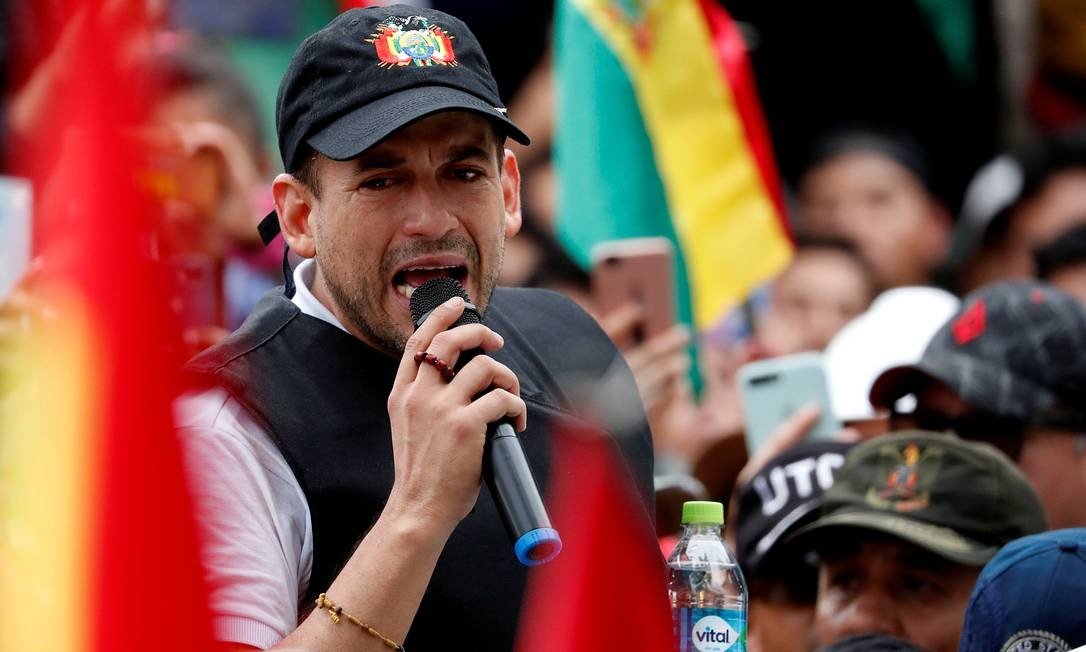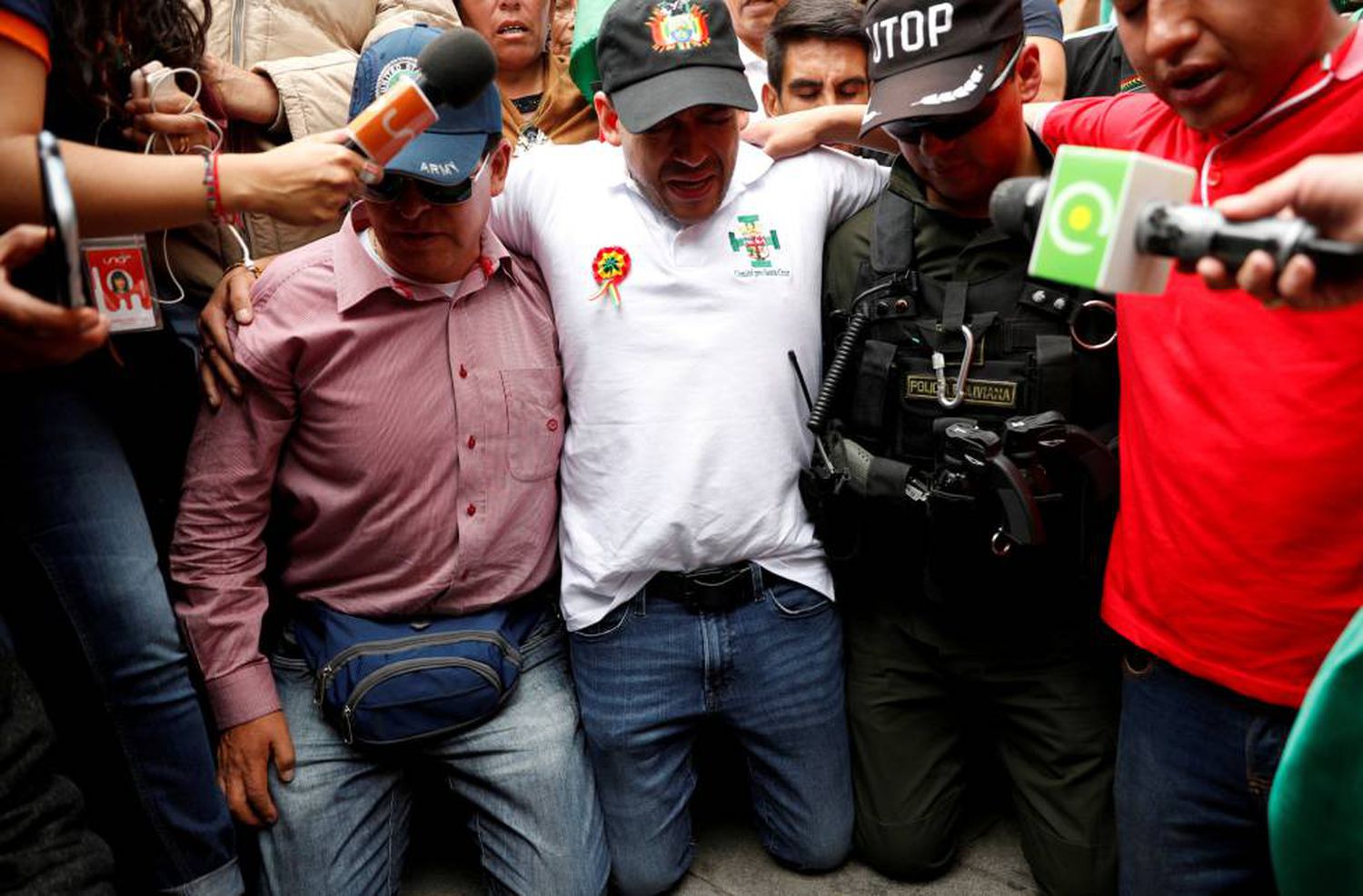RIO DE JANEIRO, BRAZIL – The leader of the civic movement that overthrew Evo Morales, Luis Fernando Camacho, does not stop pleading. Throughout the Bolivian crisis, his demands increased rapidly: first, a second round of elections, then new elections, then the president’s resignation, and now the resignation of all ruling deputies and members of the court system.
On Monday he tried to temper his position by making a call for a constitutional transition.

Camacho does not believe in the traditional political system, but only in the “people” that he led during the protest that ended with Morales’ resignation, and who now adore him. For the first time in many decades, a Santa Cruz leader enjoys enormous popularity and influence throughout the country, including in the west, generally more leftist and jealous of the economic and political power of Camacho’s home state, Bolivia’s most advanced.
How far will this personage go? Nobody knows for sure. He and his main companion, the civic leader of Potosí, Marco Pumari, are newcomers to the Bolivian political scene. They led the movement due to their status as presidents of civil committees, business associations, and neighborhood organizations of the nine regions, in Bolivia known as departments. Typically, these committees deal with regional claims and are led by local elites.
Camacho, the son of the insurance entrepreneur and former president of the same committee he now leads, José Luis Camacho, is a member of the Santa Cruz elite. He is 40 years old and has never been involved in politics before. He projects himself as the renewal of politics and does not conceal his criticisms and antagonisms against the traditional leaders of the opposition: Carlos Mesa and Samuel Doria Medina.
A passionate Catholic, in the last few days he tried to bring a written letter of resignation to Morales so that he could sign it, and he did so “armed only with the Bible”. In addition, he usually pronounces his speeches with a rosary in his hand and kneels to pray in public. One of his goals is to “return the Government Palace to God,” given the secularity of the State promulgated in the 2006 Constitution. His Catholicism was extended to the entire movement, which organized strikes, roadblocks, vigils, masses, and public prayers, among other events.
Visit to Brazil and conversation with Brazilian Chancellor
In May, in the midst of a campaign against Morales’ re-election (achieved through judicial sleight of hand), Camacho came to Brasília and met Chancellor Ernesto Araújo. He then posted a video in which he said that Brazil was a “guarantor” of the Bolivian Constitution and would support the challenge of the Bolivian’s candidacy to the IACHR (Inter-American Commission on Human Rights), which was not the case.

According to Itamaraty (the Foreign Office), the hearing was scheduled by Bolsonarist deputy Carla Zambeli. According to newspaper Valor Econômico, the leader of the Bolivian uprising was also in the Planalto Palace, to meet with Filipe Martins, the international advisor to the presidency.
In Santa Cruz, a region influenced by Brazilian rural producers with roots there, Camacho and the group of leaders he heads were linked to Branco Marincovich, one of Morales’ opponents who, accused of “secessionism and terrorism”, lives in exile. They are regionalists, liberals in economic matters, right-wingers in politics and radically opposed to former President Morales.
In domestic politics, they antagonize the party of the current governor of Santa Cruz, Rubén Costas, a moderate oppositionist, which is why they supported Carlos Mesa in the last elections, instead of joining the designated regional candidate, Oscar Ortiz, Costas’ trump card. This support allowed Mesa to win in Santa Cruz and this, in turn, prevented Morales from being directly elected.
“Macho Camacho,” as he is called, arouses the appreciation and affection of the people who took to the streets. They thank him for ‘freeing the country from the dictator’. They praise his manhood and physical presence.
On social media, he is as popular as music stars, if not more so. Camacho has a smile and a hug ready for everyone. He travels unhindered among “collas,” the population of the indigenous area of Bolivia, and “cambas,” the people of the eastern part of the country, mostly opposed to Morales, between “Indians” and “qharas” (a derogatory term for white people).
And when he reads his speeches, he always expresses his gratitude to his family and his region. With his ruthless and young vigilante appearance, his radicalism, which did not stop at rhetoric, represents the antithesis of the governing leaders and opponents of the previous political cycle. And this is why he is the man of the moment.
Source: El País

